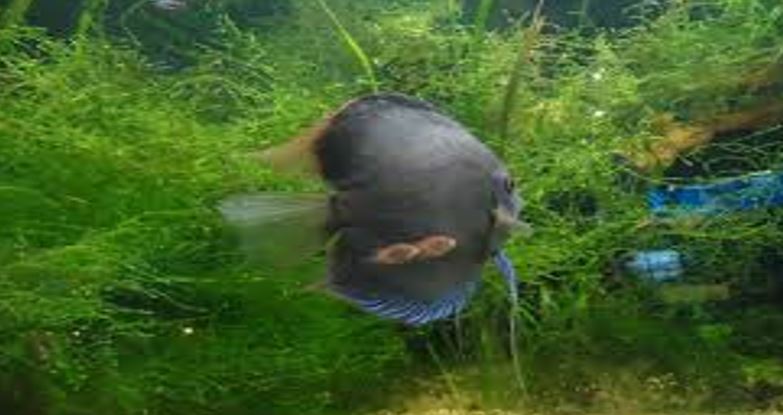Discus fishes are well-liked by almost all fish enthusiasts, and there are good reasons for that. Having a tank full of these beautiful, colorful, and elegant fish can surely add to the grace and décor of any living room. Due to their beauty, this fish species is always in high demand. This is what most likely causes the steep price associated with this fish species.
Blackening of Discus fish.
Just like many other fishes that are kept in aquariums, Discus Fish are also susceptible to many diseases that can be caused by a plethora of reasons. The most common medical disorder associated with this species is the darkening/blacking of discus fish. We have compiled a brief account of this topic in order to help our readers understand this condition in a better sense.
Symptoms
Below is a wide list of Blackening symptoms in Discus fish to help you better understand your fish’s health.
- Increasing black spots and peppering on discus body
- Discus color changes to a darker tone
- Infected discus fish will often have heavy breathing
- Leaning on one side
- Loss of Appetite
- Smelly and cloudy water in the aquarium
- Clamped fins
Why do discuss fish turn black?

There are several factors that can cause your Discus fish to start turning black.
1. Environment Adaption
Discus fishes can naturally change their color scheme in order to hide in their surrounding in a better way. It is an evolutionary trait that has helped this species to survive in the wild efficiently. Don’t forget that discus fishes are always at the mercy of predators in the wild, and therefore a good camouflage is their best defense. Blackening caused as a measure to adapt to their surrounding is nothing to worry about and is usually characterized by the development of black dots on the entire body known as “Peppering.” These dots can also grow to form patches.
2. Discus Stress
Discus fishes, just like many other species, are schooling fish and therefore prefer to be around their kin. This can cause a Discus fish that lives alone extreme stress, which can lead to blackening of the fish. That’s why it’s never recommended to have a single discus fish as they shine to their fullest when in a group.
3. Bacterial Infection.
One of the leading causes of blackening in Discus fishes is a bacterial infection. Bacterial infections can be seriously fatal, and therefore one should keep a lookout for such infections and attend to them as fast as possible.
You can prevent your beloved fish from such a bad outcome by strengthening their immune system; this can be achieved by providing them with a balanced, quality diet and providing them with clean water.
4. Marble Discus.
Having a marble discus in your fish tank will surely save you from worrying about blackening as this breed is naturally black and therefore is not susceptible to any blackening. This breed was developed in China.
5. Black-Stripe Syndrome
It is a condition in which a parasite present inside the body of discus causes granulation resulting in the blackening of the skin. A common parasite associated with this medical condition is called Cryptobia, which is a ciliated protozoan. Changing the water regularly and adding aquarium salt into the water can prevent your fish from such parasitic infections.
It is always important to regularly clean your fish tank to keep all your fish healthy. Read this article to learn more about cleaning a fish tank: How Often Do You Clean a 5 Gallon Fish Tank?
